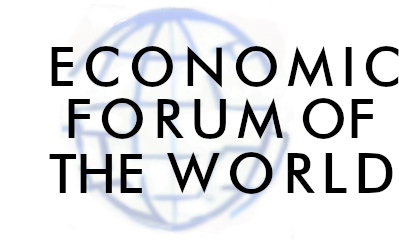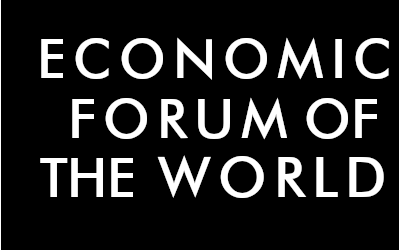“Sapiens: A Brief History of Humankind” by Yuval Noah Harari offers a comprehensive overview of the history of our species, from the emergence of anatomically modern humans to the 21st century.
Here’s a concise summary of its key insights and crucial facts:
The Cognitive Revolution (c. 70,000 years ago):
- Emergence of the Homo sapiens, outcompeting other human species.
- Development of cognitive abilities, allowing complex communication and planning.
- Creation of myths, stories, and imagined realities that allow large-scale cooperation (e.g., religions, nations).
The Agricultural Revolution (c. 10,000 years ago):
- Transition from foraging to farming.
- Domestication of plants and animals led to settled communities.
- Creation of larger and more complex societal structures, but also brought diseases and hierarchical systems.
- Farming may have led to a decline in individual quality of life compared to foraging.
The Unification of Humankind:
- Creation and spread of large empires, religions, and trade networks that began to connect the entire globe.
- Shared myths and belief systems allowed for vast numbers of strangers to cooperate.
- Development of universal order concepts like money, religions, and empires.
The Scientific Revolution (c. 500 years ago):
- Shift in human thinking towards valuing evidence-based inquiry.
- Lead to industrial, economic, and political revolutions that shaped modern societies.
- Birth of capitalism and the pursuit of growth.
- Technological advancements fundamentally changing humanity’s impact on the planet.
Key Insights:
- Fiction and Shared Beliefs: Much of human society is built on shared beliefs in intangible or non-tangible concepts (like corporations, nations, human rights). These shared stories allow large numbers of humans to cooperate.
- Happiness: Despite massive economic and technological growth, it’s unclear if human happiness and contentment have significantly increased over the millennia.
- Biological Hierarchies: While many societies believe in the idea of equality, there have been persistent attempts to categorize and rank humans based on biological criteria (race, gender, etc.).
- Future Challenges: As technology, especially biotechnology and AI, continues to evolve, humanity faces challenges related to identity, meaning, and the potential redesigning of life itself.
“Sapiens” is a broad overview of human history, weaving together anthropology, history, and philosophy to challenge and enlighten our understanding of our species’ past, present, and future.

“Sapiens: A Brief History of Humankind” by Yuval Noah Harari has been both praised and critiqued for its sweeping overview of human history. Below are some of the main pros and cons that reviewers and scholars have pointed out:
Pros:
- Engaging Writing Style: Harari’s narrative is accessible, engaging, and often weaves complex ideas in a story-like manner that appeals to a broad audience.
- Interdisciplinary Approach: The book seamlessly combines anthropology, history, biology, and philosophy, providing readers with a holistic view of human history.
- Fresh Perspectives: Harari challenges traditional narratives, offering new insights into topics like the Agricultural Revolution, the importance of shared myths, and the rise of the Scientific Revolution.
- Provocative Ideas: Harari’s emphasis on the power of shared myths (like corporations, religions, and nations) in human society has sparked widespread discussion and reflection.
- Broad Scope: The book’s vast temporal and thematic range gives readers a comprehensive understanding of the trajectory of human civilization.
Cons:
- Overgeneralization: Given the book’s ambitious scope, some historians and scholars have critiqued Harari for oversimplifying complex events and processes.
- Western Centric: Despite attempting a global history, some critics argue that Harari’s narrative is occasionally too Eurocentric, particularly in sections discussing the last 500 years.
- Speculative at Times: While many appreciate the book’s big ideas, some critics find parts of Harari’s narrative to be speculative, especially when discussing the emotions and motivations of prehistoric humans.
- Controversial Takes: Some of Harari’s interpretations, especially regarding the Agricultural Revolution as a ‘trap’ for humanity and his views on capitalism and human happiness, have been contentious.
- Lack of Primary Sources: Critics from the academic community have noted that “Sapiens” sometimes lacks rigorous engagement with primary historical sources, relying more on secondary sources and broader syntheses.
Overall, while “Sapiens” has been lauded for its compelling narrative and thought-provoking ideas, it’s also been critiqued for its generalizations and some controversial takes. However, its impact is undeniable, sparking widespread discussion about humanity’s past, present, and future.

What are the conclusions of Sapiens?
“Sapiens” offers a reflective look at humanity’s past and uses it as a lens through which to gaze at potential futures. Here are the conclusions and outlooks presented by Harari in the book:
- Potential for Bioengineering and AI: As we progress, technology, particularly bioengineering and AI, might challenge the very essence of ‘human.’ These technologies could redesign the human body and mind, perhaps leading to the emergence of “superhumans” or entirely new beings.
- Loss of Meaning: Harari suggests that modern civilization, with its technological marvels and scientific insights, might lead to a world rich in material wealth but devoid of purpose and meaning.
- Question on Happiness: One of the central inquiries of the book revolves around human happiness. Despite all our advancements, are we any happier than our ancestors? Harari isn’t very optimistic about this, suggesting that while our conditions of living have dramatically improved, subjective well-being hasn’t necessarily followed the same trajectory.
- Potential for Unequal Societies: The advancements in technology might lead to even more hierarchical societies, where divisions are not just based on socio-economic factors but on biological ones. For instance, bioengineering could create a class of superhumans with enhanced abilities, leading to further inequalities.
- Existential Risks: The same tools that have enabled our progress can also lead to our downfall, be it through ecological collapse, nuclear warfare, or unchecked AI development.
Optimistic/Pessimistic? Harari’s tone in “Sapiens” can be described as cautiously pessimistic. While he acknowledges humanity’s incredible achievements, he also underscores the potential risks of our current trajectory.
Favoring Hierarchy/Emergence? The book presents both perspectives. Harari emphasizes how shared myths and beliefs, like religions, nations, and money, have allowed for large-scale human cooperation. However, he also warns about the potential rise of new, technology-driven hierarchies.
Who Might be Inspired:
- General readers interested in a sweeping overview of human history.
- Thinkers and futurists pondering the next steps in human evolution.
- Technology enthusiasts curious about the intersection of humanity and technological progress.
Who Might be Dismayed or Offended:
- Academics and specialists might find the book’s broad strokes and occasional lack of nuance problematic.
- People with strong religious beliefs could be unsettled by Harari’s treatment of religion as a “shared myth.”
- Economic and political traditionalists might disagree with some of Harari’s critiques of capitalism and national structures.
“Sapiens” indeed raises more questions than it answers, prompting readers to deeply reflect on humanity’s place in the cosmos and our future direction.
Q: Does “Sapiens” create a potential controversy in a similar manner that Social Darwinism did in the time leading up to and including WWII? If so, what are the implications of the introduction of new ideas?
“Sapiens” by Yuval Noah Harari does introduce a set of ideas and interpretations of human history that can be controversial. This is especially evident in his views on shared myths, the potential future of bioengineering, and the inherent inequality it might introduce.
However, comparing it directly to Social Darwinism and the controversy it engendered might be a bit of a stretch, although both offer ample opportunity for misinterpretation and misuse.
Social Darwinism and WWII: Social Darwinism was a misapplication of Darwin’s theory of evolution to human societies.
It proposed that certain races or classes were naturally superior and were destined to dominate others.
This idea, in its most extreme forms, helped to justify imperialistic endeavors, racial superiority ideologies, and eventually the horrific eugenics movement. These ideas found their most extreme manifestation in Nazi Germany.
The danger with Social Darwinism was that it provided a “scientific” justification for prejudices, biases, and inhumane actions. When fused with political power, as in Nazi Germany, the consequences were devastating.
Potential Controversy with “Sapiens”: Harari does discuss the potential future where bioengineering might create “superhumans” and how technology could lead to even greater societal hierarchies. If taken to extremes or misinterpreted, these ideas could be used to justify creating a “superior” class of humans or deepening existing societal divisions.
However, Harari does not advocate for these scenarios; he warns against them. He presents them as potential futures that we should be wary of, not as inevitable or desirable outcomes.
Implications of Introducing Such Ideas:
- Potential Misuse: Like any potent idea, those in “Sapiens” can be misused or taken out of context. Elites or powerful groups might pick up certain elements of these ideas to justify supremacy or control.
- Philosophical and Ethical Debates: The book can stimulate deep discussions about our future as a species. What do we value? What kind of future do we want?
- Mobilization: On the positive side, by highlighting potential pitfalls and dangerous trajectories, the book might mobilize people to take preventive actions or shape societal developments in more equitable ways.

In summary, while “Sapiens” introduces ideas that, in the wrong hands, could be used to justify inequality or supremacy, Harari’s intention is more of a cautionary tale than a roadmap for elitism.
Like Darwin’s theory, the true risk is not in the idea itself but in its misinterpretation and misuse. It’s crucial for societies to engage critically with such ideas, ensuring they are used for reflection and positive change rather than for justifying harm or inequality.





